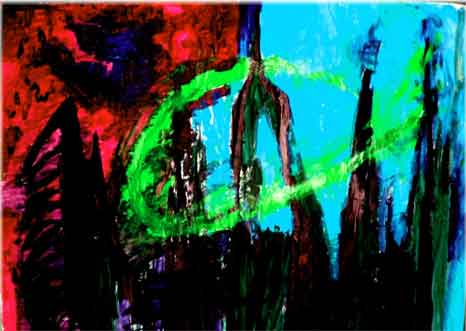The 20th century has witnessed several attempts to build parts of mathematics on grounds other than those provided by classical logic. The original intuitionist renderings of set theory, arithmetic, analysis, etc. were later accompanied by those based on relevant, paraconsistent, contraction-free, modal, and other non-classical logics. The subject studying such theories can be called non-classical mathematics, i.e., the study of any part of mathematics that is, or can in principle be, formalized in some logic other than classical. This special session at the 2010 UniLog World Congress is a follow-up to the conference on Non-Classical Mathematics that was held in Hejnice, Czech Republic, in June 2009.
The scope of interest of this special session contains, but is not limited to the following topics:
* Intuitionistic, constructive, and predicative mathematics: Heyting arithmetic, intuitionistic set theory, topos-theoretical foundations of mathematics, constructive or predicative set and type theories, pointfree topology, etc.
* Substructural and fuzzy mathematics: relevant arithmetic, contraction-free naïve set theories, axiomatic fuzzy set theories, fuzzy arithmetic, etc.
* Inconsistent mathematics: calculi of infinitesimals, inconsistent set theories, etc.
* Modal mathematics: arithmetic or set theory with epistemic, alethic, or other modalities, modal comprehension principles, modal treatments of vague objects, modal structuralism, etc.
* Alternative classical mathematics: alternative foundational theories over classical logic, non-standard analysis, etc.
* Topics related to non-classical mathematics: metamathematics of non-classical or alternative mathematical theories, their relative interpretability, etc.
Special Session
Organized by Libor Behounek and Petr Cintula
Czech Academy of Science
Invited talk
1. Arnon Avron, Tel Aviv University, School of Computer Science, Israel, "A New Approach to Predicative Set Theory"
Accepted contributed talks
2. Libor Behounek and Petr Cintula, Academy of Sciences of the Czech Republic, Institute of Computer Science, "Features of Mathematical Theories in Contraction-Free Logics
3.Frode Bjordal, University of Oslo, Faculty of Humanities, "Minimalistic Liberalism - a Contradictory Semi-Formal Set Theory Respecting Classical Logic, and with Mathematical Power Beyond $\Pi^1_2$-CA$_0$"
4.Piotr Blaszczyk, Pedagogical University of Cracow, Institute of Mathematics, Poland "Nonstandard Analysis in Action: Zeno of Elea and His Modern Rivals Revisited"
5.Ross T. Brady, La Trobe University, Faculty of Humanities and Social Sciences, Australia, "The Simple Consistency of Arithmetic, for Metacomplete Logics Without Quantified Forms of Distribution"
6.Michal Holcapek, University of Ostrava, Institute for Research and Applications of Fuzzy Modeling, "Fuzzy Sets and Fuzzy Classes in Universes of Sets"
7.Valery Khakhanian, Moscow State University of Railway Communications, "Intuitionistic Approach for Justification of a Set Theory"
8.Vilem Novak, University of Ostrava, Institute for Research and Applications of Fuzzy Modeling, "Many-Valued (Fuzzy) Type Theories"
9. Graham Priest, Universities of Melbourne, Department of Philosophy and St Andrews, Department of Philosophy and City University of New York, Graduate Center, "Mathematical Pluralism"
10. Itala M.L. D'Ottaviano and Tadeu Fernandes de Carvalho, Center of Logic, State University of Campinas, UNICAMP and Dpt of Mathematics, Catholic University of Campinas , "Relations between the classical differential calculus and da Costa's paraconsistent differential calculus".
